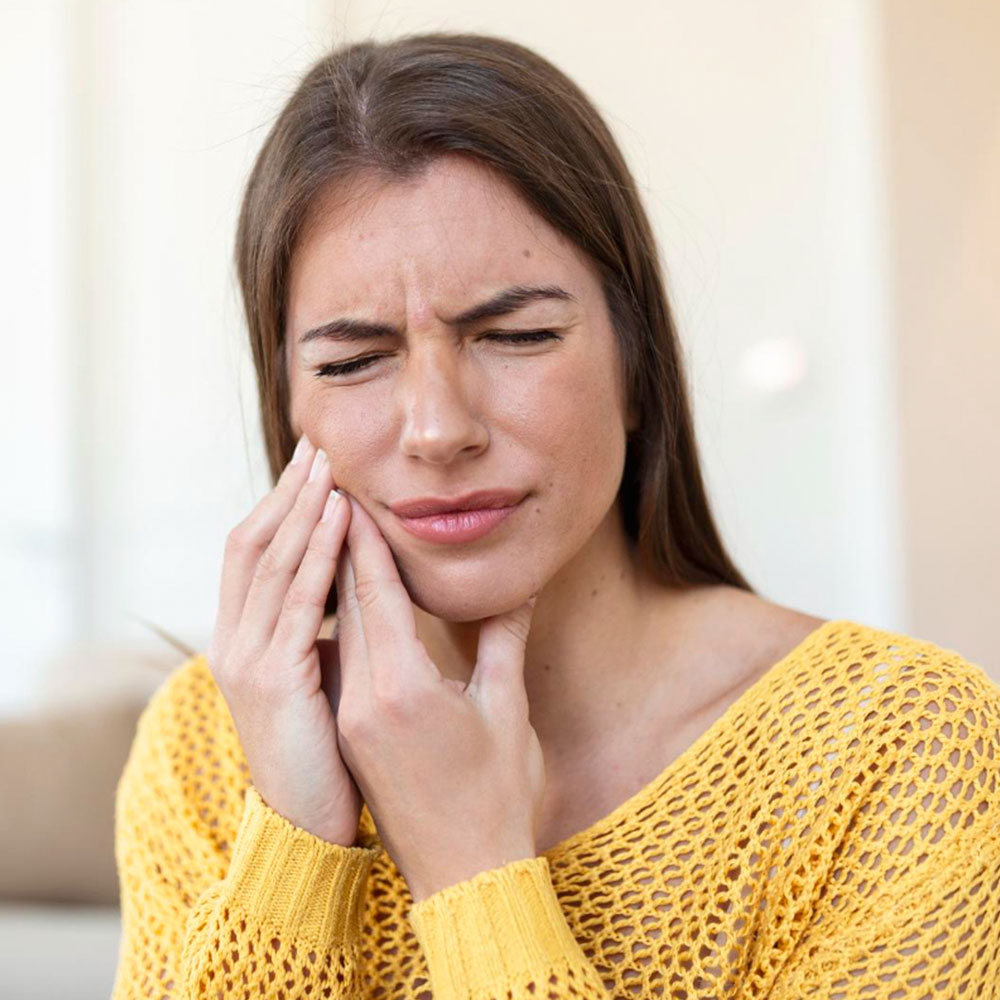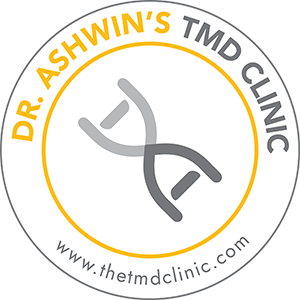TMD SYMPTOMS
TMJ / TMD is a chronic pain condition that affects many, especially young healthy individuals in their prime. Jaw discomfort can occur due to several issues, such as poorly aligned teeth/bite, injury, grinding teeth, pathologies, etc.

The most common symptoms are:

Jaw pain, tenderness, or swelling.

Sensitive teeth

Clicking, popping, or grating sounds when opening or closing your mouth.

Head, neck, shoulder, or back pain

Severe teeth wear

Facial pain

Grinding or clenching your teeth.

Chronic headaches. (This is often mistaken for migraine)

Ear pain, Dizziness/Vertigo, tinnitus.

Jaw locks in an opened or closed position.
The above symptoms are often misdiagnosed as migraine, spondylitis etc. This has earned TMD the name “The Great Impostor Disease”. It therefore becomes important to identify the root cause and address it accordingly. It should be noted that medication plays a very limited role in the management of TMD.

The most common symptoms are:
- Jaw pain, tenderness, or swelling.
- Chronic headaches.
- (This is often mistaken for migraine)
- Sensitive teeth
- Severe teeth wear
- Clicking, popping, or grating sounds when opening or closing your mouth.
- Jaw locks in an opened or closed position.
- Head, neck, shoulder, or back pain
- Facial pain
- Grinding or clenching your teeth.
- Ear pain, Vertigo, tinnitus.
The above symptoms are often misdiagnosed as migraine, spondylitis etc. This has earned TMD the name “The Great Impostor”. It therefore becomes important to identify the root cause, and address it accordingly. It should be noted that medications play a very limited role in the management of TMD.
FAQ
Frequently Asked Questions
The joint between the temporal bone and the mandible (lower jaw) is known as the temporomandibular joint. In order to move the jaw, a complex network of nerves, muscles, and both TM joints need to act in harmony. This disorder affecting jaw movements is frequently painful and is called Temporomandibular Disorder or TMD.
Treatment for TMJ is not subject to set prices, as each individual is unique.
Accordingly, treatment needs to be customized foe every person after proper assessment.
A dentist with specialized training and equipment in Neuro - Muscular Dentistry for TMD.
An imbalance between the teeth, jaw joints (TMJ's) and chewing muscles is the most predominant cause for TMD.
TMD can also be caused on by bruxism, head, neck, or jaw injuries.
That said, there is a long list of other causes too, such as trauma and pathologies like arthritis etc that can cause TMD.
There are some habits that could increase the risk of developing TMD.
This includes night grinding of teeth during sleep, continuous use of chewing gum, teethth clenching that isn't necessary, biting of pencils, pens, and other hard things etc.
Common symptoms include severe headache / migraine, pain spreading behind eyes, ears, jaw discomfort, pain in the face, neck, shoulder, ear, neck, and/or back, sleepiness, snoring, sleep apnoea, vertigo (dizziness) etc.
Any of these symptoms when seen in otherwise healthy individuals can be indicative of TMD.
No. This does not address the root cause.
TMD needs to be assessed and treated ideally by a dentist with specific equipment and training in neuromuscular dentistry.
Pain killers and home remedies will not address the problem.
